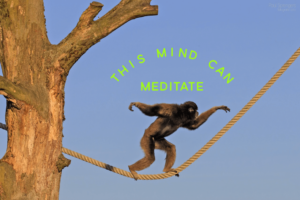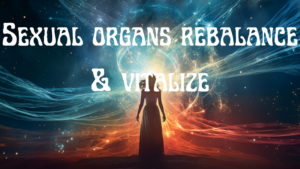Stress is an inevitable part of life, but understanding its causes, effects, and management strategies can help you navigate it more effectively. In this blog post, we’ll explore the different types of stress, its physical and emotional symptoms, and practical strategies to manage it.
What is Stress?
Stress is your body’s natural response to a perceived challenge or threat. It triggers physical, emotional, and mental reactions. Whether it’s a tight deadline, a personal confrontation, or ongoing financial struggles, stress manifests in various ways.
Types of Stress
1. Acute Stress
- Definition: Short-term stress caused by immediate challenges or situations.
- Examples: Tight deadlines, sudden changes, or unexpected events.
- Impact: Intense but short-lived.
2. Chronic Stress
- Definition: Long-term stress caused by ongoing issues.
- Examples: Chronic illness, financial struggles, or relationship conflicts.
- Impact: Persistent and can lead to severe health issues.
Causes of Stress
1. External Stressors
- Definition: Stressors caused by external factors.
- Examples: Work pressure, life changes (marriage, divorce, having children), financial difficulties, or relationship conflicts.
2. Internal Stressors
- Definition: Stressors caused by internal factors.
- Examples: Negative self-talk, perfectionism, unrealistic expectations, fear of failure, or people-pleasing tendencies.
Physical Reactions to Stress
When stress occurs, your body reacts in several ways:
- Increased Heart Rate and Blood Pressure: Your body enters “fight or flight” mode.
- Muscle Tension: Muscles tighten as a protective mechanism, leading to pain or stiffness.
- Shallow Breathing: Rapid, shallow breathing reduces oxygen intake, causing dizziness or hyperventilation.
- Release of Stress Hormones: Cortisol and adrenaline increase energy and alertness but can disrupt digestion, immunity, and sleep if chronic.
Emotional Symptoms of Stress
Stress doesn’t just affect your body—it impacts your emotions too:
- Anxiety and Irritability: Heightened feelings of worry or nervousness.
- Mood Swings: Anger, sadness, or depression.
- Overwhelm: Feeling out of control or unable to manage tasks.
- Avoidance Behaviors: Unhealthy coping mechanisms like substance abuse or overeating.
Cognitive Effects of Stress
Stress can also impair your ability to think clearly:
- Difficulty Concentrating: Trouble focusing on tasks or making decisions.
- Memory Problems: High cortisol levels can impair the hippocampus, leading to forgetfulness.
- Negative Thinking: Persistent negative thoughts or difficulty seeing the positive.
Health Impacts of Stress
Chronic stress can lead to serious health issues:
- Headaches and Migraines: Changes in blood flow can trigger pain.
- Digestive Issues: Stress can cause nausea, stomachaches, constipation, or diarrhea.
- Heart Disease: Elevated blood pressure and inflammation increase the risk of cardiovascular problems.
- Weakened Immunity: Chronic stress makes you more susceptible to illnesses.
- Sleep Disturbances: Racing thoughts or physical discomfort can disrupt sleep.
Signs You May Be Stressed
Stress often goes unnoticed because it becomes a part of daily life. Here are some signs to watch for:
- Physical Signs: Headaches, muscle tension, fatigue, changes in appetite, or digestive issues.
- Emotional Signs: Irritability, anxiety, sadness, or feeling overwhelmed.
- Cognitive Signs: Trouble concentrating, forgetfulness, or indecisiveness.
- Behavioral Signs: Avoidance, procrastination, or increased substance use.
Chronic Stress: The Long-Term Impact
Chronic stress can have severe, long-lasting effects:
- Persistent Fatigue: Constant exhaustion despite rest.
- Weakened Immune System: Frequent colds or infections.
- Chronic Pain: Ongoing pain or stiffness.
- Emotional Numbness: Feelings of hopelessness or detachment.
- Cognitive Decline: Impaired memory, mental fog, or catastrophic thinking.
Stress Management Strategies
Managing stress requires a combination of short-term, medium-term, and long-term strategies.
Short-Term Strategies
- Breathing Exercises: Practice deep breathing or box breathing to calm your nervous system.
- Physical Movement: Take a short walk, stretch, or do quick exercises.
- Mindfulness: Focus on your senses or try a 5-minute meditation.
- Distractions: Engage in hobbies, watch videos, or listen to music.
- Time Management: Prioritize tasks and talk to a friend or loved one.
Medium-Term Strategies
- Establish a Routine: Reduce unpredictability and decision fatigue.
- Adjust Your Diet: Avoid foods that worsen stress.
- Therapy or Counseling: Seek professional help to understand triggers.
- Practice Gratitude: Gratitude can rewire your brain and reduce stress.
Long-Term Strategies
- Meditation and Mindfulness: Build resilience to stress over time.
- Lifestyle Changes: Evaluate work-life balance and relationships.
- Social Connections: Develop strong support networks.
- Healthy Habits: Prioritize sleep, hydration, and balanced nutrition.
- Set Boundaries: Learn to say no to unnecessary obligations.
Final Thoughts
Stress doesn’t come from external circumstances—it comes from your thoughts about those circumstances. By rethinking your response to stressors and implementing effective management strategies, you can reduce its impact on your life.
If you’re feeling overwhelmed, start small with short-term strategies and gradually incorporate medium and long-term techniques. Remember, everyone’s stressors and solutions are different, so find what works best for you.
Thank you for reading! Feel free to reach out if you have any questions or need further guidance. Let’s work together to manage stress and improve your well-being.






